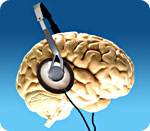
Exercising your brain proven to help prevent Alzheimer's
Thursday, February 02, 2012 by: Tara Green
Tags: exercise, brain, Alzheimer's
- Newly released JFK files reveal Pentagon's role in creating Lyme disease and covid in the same lab
- Here are TEN all-natural ways to protect your garden without using harmful chemicals
- Ginseng's hidden anti-aging power: How compound K is rewriting the rules of skincare
- “Endgame: The Hidden Agenda 21” unveils a world of conspiracy and control
- L.A.'s rebuilding nightmare: Only 4 permits issued after fire destroys 6,000 homes
- Scientists demand FDA withdraw mRNA COVID vaccines amid contamination and gene therapy concerns
- Senate Democrats deny censorship industrial complex existed, defend government's role in silencing dissent
- Dr. Suzanne Humphries makes bombshell appearance on Joe Rogan podcast, exposing vaccine industry deception back to POLIOMYELITIS
- “The shame of Minnesota”: Somali immigrants behind $250 million child nutrition fraud in largest COVID-era scam
- Former Congresswoman exposes CCP's deep infiltration of California through universities, ports, and fentanyl
- PROCESSED TABLE SALT in foods found to fuel depression
- Despite surge in MMR vaccination in Texas, measles outbreaks continue: Is VACCINE SHEDDING fueling the spread?
- Chewing gum's dirty secret: How your daily habit could be flooding your body with microplastics
- “Independent” anti-Russia outlet MEDUZA faces COLLAPSE as US funding dries up
- BPA: The hidden hormone disruptor sabotaging your health - and how to fight back
- Embracing the wild: A deep dive into Jim Cobb’s “Backwoods Survival Guide”
- The hidden battle in your glass: How A1 and A2 milk could shape your health
- Nomi Prins reveals how central bankers reshaped the global economy in “Collusion”
- Newly released JFK files reveal Pentagon's role in creating Lyme disease and covid in the same lab
- Analysis: The coming economic collapse, a mass uprising and Trump's three secret weapons to halt the growing revolt
- Festive flavors: The sweet history, nutritional profile and health benefits of pecan pie
- Elon Musk: Aliens could be here on Earth RIGHT NOW
- Trump reverses course on Gaza plan, says “nobody is expelling Palestinians”
- Big Pharma's $8 Billion bribery scheme exposed: how doctors are pushed to prescribe junk science, not heal
- Boys are back in town: Trump’s patriotic alpha crew takes the wheel while toxic females ride in the backseat
- Reclaim your health: How midlife exercise reverses years of inactivity
- A lack of integrity in Academia: Harvard professor found GUILTY of fraudulent research to promote CRT theory
- Survival 101: Effective EMF blocking techniques
- EPA advisor admits the agency is funneling billions to climate groups ahead of Trump’s return to White House
- Dr. Mike Yeadon releases 15-minute testimony - WATCH - about genocidal intent of COVID “vaccines”
- 5 Simple steps to boost your brainpower: How to strengthen executive function in a distracted world
- Florida takes a stand: DeSantis proposes permanent ban on mRNA vaccine mandates
- Sugarcane extract superior to cholesterol-lowering drugs?
- Mike Adams Sermon 66: God will DESTROY ISRAEL for its wickedness
- Pilots report mysterious lights 'moving at extreme speeds' across Oregon skies
- Space war brewing? Russia threatens to destroy Starlink satellites
- EPA advisor admits the agency is funneling billions to climate groups ahead of Trump’s return to White House
- California's social media censorship law struck down: A victory for free speech or a threat to online safety?
- The Health Ranger releases “Vaccine Zombie” song and music video, using AI-animated zombies for the music video
- Dr. Mike Yeadon releases 15-minute testimony - WATCH - about genocidal intent of COVID “vaccines”
- The pandemic as a tool for INDOCTRINATION: Understanding “The Indoctrinated Brain” by Dr. Michael Nehls
- Newly released JFK files reveal Pentagon's role in creating Lyme disease and covid in the same lab
- Florida takes a stand: DeSantis proposes permanent ban on mRNA vaccine mandates
- Mike Adams releases country western hit single: Goin’ Back in Time is Comin’ Home
- Mike Adams releases music poetry sensation: A Child of God
- “Why we influenced the 2020 elections”: Facebook files reveal the coordinated effort to bury the Hunter Biden laptop story
- Unpacking the Lies That We’ve Been Fed – new song and music video released by Mike Adams, the Health Ranger
- RFK Jr. clears key hurdle: Sen. Susan Collins backs controversial HHS nominee, signaling a new era for health policy
- Mike Adams releases new song and music video: Nothing More Disgusting Than a Globalist
- Michigan sheriff announces criminal investigation into 2020 election crimes, Dominion Voting Systems
- Israeli soldiers accused of even more torture and abuse in the West Bank
- Migrants are taking advantage of recent hurricanes to scam residents and loot their homes
- House Intelligence Committee calls for the ARREST and PROSECUTION of Dr. Anthony Fauci
- Rep. Nancy Mace introduces bill to ban biological males from female facilities on federal property
- Red Cross issues warning to stop blood plasma donations from vaccinated people
- Scientists confirm: GENIUS brain function can be spontaneously unleashed in humans without any apparent cause
- EPA advisor admits the agency is funneling billions to climate groups ahead of Trump’s return to White House
- HYSSOP: What research reveals about the health benefits of this ancient holy herb
- Two containers with completed ballots fall out of truck in Florida
- Fully vaccinated about to see “tsunami” of illness and death, warns virologist
- Global leaders unite to clamp down on “misinformation” with UN-backed Cascais Declaration
- BREAKING: 2025 NDAA authorizes mandatory military draft of WOMEN across America… as Pentagon pursues global NUCLEAR war with both Russia and China at the same time
- Michael Yon warns of a ZIONIST TAKEOVER in Trump’s second administration
- BOMBSHELL: DNA testing kits are a SCAM to develop ethnic-specific bioweapons
- Ozempic and Wegovy weight loss drugs are injectable LIZARD VENOM PEPTIDES that may unleash a devastating wave of organ failure… side effects align with symptoms of SNAKE BITES
- Israeli soldiers accused of even more torture and abuse in the West Bank
- These 13 countries just signed an agreement to engineer a global FAMINE by destroying food supply
- NASA admits that climate change occurs because of changes in Earth’s solar orbit, and NOT because of SUVs and fossil fuels
- RFK Jr. clears key hurdle: Sen. Susan Collins backs controversial HHS nominee, signaling a new era for health policy
- Sermon 30: How Jesus reveals Caesar’s FAKE CURRENCY and FALSE AUTHORITY
- Coriander seeds: Ancient medicine backed by modern science
- Arizona officials claim Maricopa County needs 10-13 days to tabulate results of the election
Benefits of brain exercise
The principal investigator for the study, Dr. William Jagust, of UC Berkeley's Helen Wills Neuroscience Institute and Lawrence Berkeley National Laboratory stated, "These findings point to a new way of thinking about how cognitive engagement throughout life affects the brain. Rather than simply providing resistance to Alzheimer's, brain-stimulating activities may affect a primary pathological process in the disease. This suggests that cognitive therapies could have significant disease-modifying treatment benefits if applied early enough, before symptoms appear".The number of deaths from Alzheimer's rose by 66 percent between 2000 and 2008, an increase tied to the aging of the baby boomer generation, making the disease the sixth-leading killer in the US. A draft of the first-ever National Alzheimer's Plan, released in January 2012, states that one of the government's health goals is to find an effective treatment for this incurable disease by 2025.
The research of Jagust and his team, published recently in the Archives of Neurology, highlights the importance of amyloid, a type of protein fiber which accumulates as plaque in the brain. Since beta-amyloid has been identified as a possible cause to Alzheimer's disease, the new study, funded by the National Institute of Health and the Alzheimer's Association, is an important step forward and a guidepost for future studies.
The build-up of amyloid is in part related to factors outside individual control such as genetics and the natural effects of the aging process. However, the new study suggests people may have more ability than previously thought to minimize this harmful protein in the brain through reading, writing, solving puzzles or playing mentally challenging games.
Start early to prevent Alzheimer's
Researchers emphasize that preventive activities should take place early. "Amyloid probably starts accumulating many years before symptoms appear. So it's possible that by the time you have symptoms of Alzheimer's, like memory problems, there is little that can be done to stop disease progression. The time for intervention may be much sooner, which is why we're trying to identify whether lifestyle factors might be related to the earliest possible changes," said study lead author Susan Landau, a research scientist at the Helen Wills Neuroscience Institute.The study involved 65 healthy, cognitively normal adults aged 60. Participants responded to questions about how frequently they participated in such mental activities over the course of their lives from age 6 onward. Participants also received extensive neuropsychological testing to assess memory and other cognitive functions.
PET (positron emission tomography) scans were given to all the research subjects using a new tracer called Pittsburgh Compound B which provides a visual reading of amyloid in the brain. The brain scans of the healthy study subjects were compared with those of patients diagnosed with Alzheimer's disease and also with healthy people in their 20s.
The researchers found a strong correlation between higher levels of cognitive activity over a lifetime and lower levels of beta-amyloid in the PET scans. Lifelong cognitive engagement was found to be independently linked to amyloid deposition, regardless of other factors such as gender and educational level. Unless tied to a life history of mental activity, current cognitive exercise seemed to have little effect on amyloid disposition. Landau noted "What our data suggests is that a whole lifetime of engaging in these activities has a bigger effect than being cognitively active just in older age."
Sources:
http://www.sciencedaily.com/releases/2012/01/120123163348.htm
http://yourlife.usatoday.com
http://healthfinder.gov/news/newsstory.aspx?Docid=661005
http://www.seniorjournal.com
Exercise at FETCH.news
Get independent news alerts on natural cures, food lab tests, cannabis medicine, science, robotics, drones, privacy and more.
Take Action: Support Natural News by linking to this article from your website
Permalink to this article:
Embed article link: (copy HTML code below):
Reprinting this article:
Non-commercial use OK, cite NaturalNews.com with clickable link.
Follow Natural News on Facebook, Twitter, Google Plus, and Pinterest
Science News & Studies
Medicine News and Information
Food News & Studies
Health News & Studies
Herbs News & Information
Pollution News & Studies
Cancer News & Studies
Climate News & Studies
Survival News & Information
Gear News & Information
News covering technology, stocks, hackers, and more



"Big Tech and mainstream media are constantly trying to silence the independent voices that dare to bring you the truth about toxic food ingredients, dangerous medications and the failed, fraudulent science of the profit-driven medical establishment.
Email is one of the best ways to make sure you stay informed, without the censorship of the tech giants (Google, Apple, Facebook, Twitter, YouTube, etc.). Stay informed and you'll even likely learn information that may help save your own life."
–The Health Ranger, Mike Adams













































